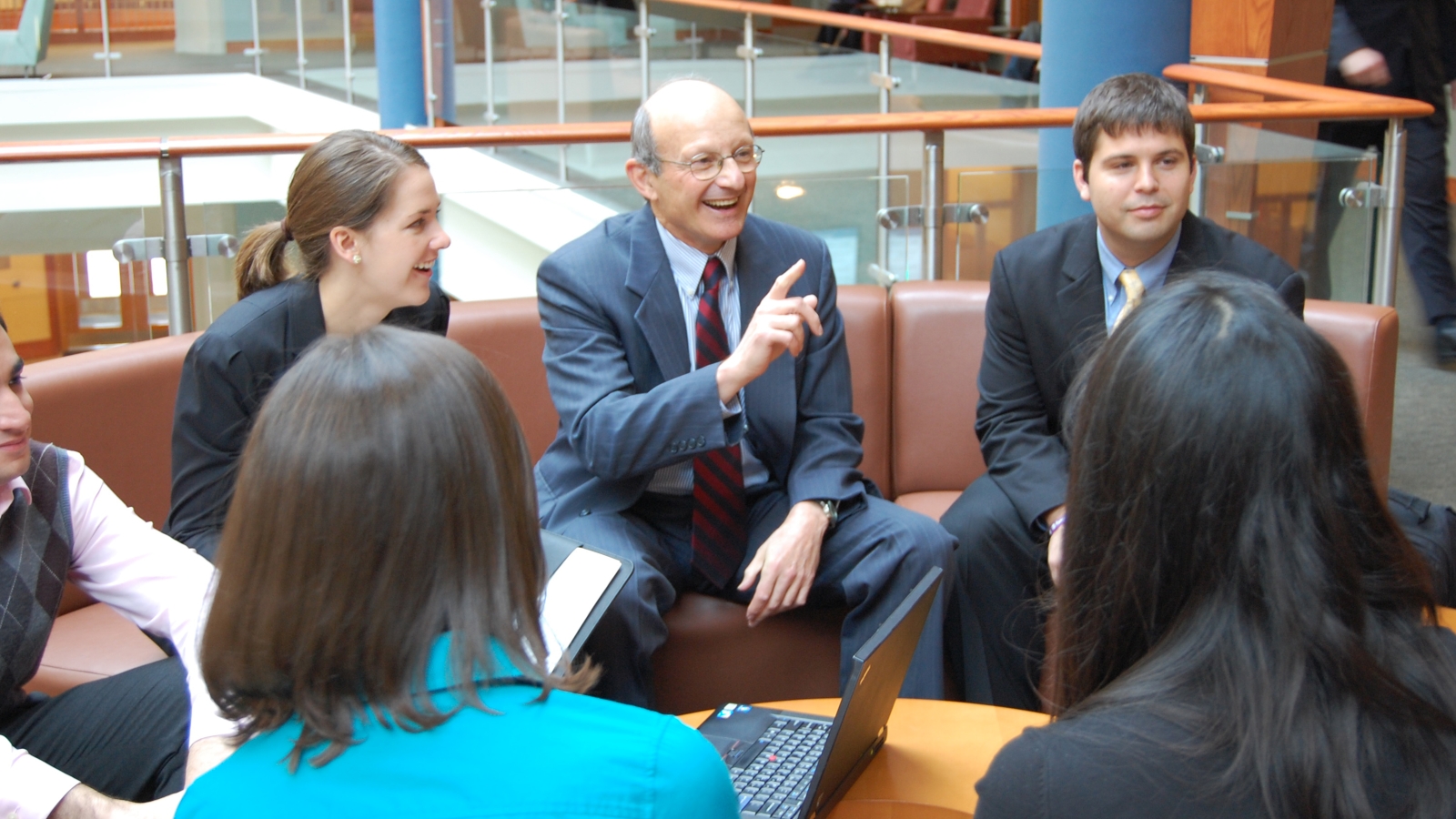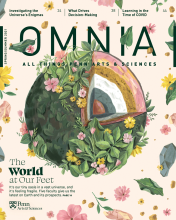Marketing for Good
Bill Novelli, C’63, ASC’64, PAR’90, went from selling soap and cereal to ideas and causes.

As a young brand manager, Bill Novelli, C’63, ASC’64, PAR’90, sold everything from laundry detergent to cat food. Then, an assignment to boost viewership for Sesame Street and other PBS programs motivated him to shift his career focus. His skills in advertising and marketing products, Novelli realized, could be harnessed for a greater purpose: promoting social good.
A pioneering career in social marketing unfolded over the next 50 years. Novelli has raised awareness for the Peace Corps, lobbied against the tobacco industry, managed a humanitarian aid organization, and launched a national alliance to reform palliative care. He founded a public relations firm for social impact, where his team ran campaigns to influence health behaviors. His greatest challenge was an eight-year tenure as CEO of AARP, leading the nonprofit’s response during a contentious period of national debate over Medicare and Social Security policies.
“I’ve got this career goal that evolved and that I follow, and it’s to make significant contributions to solving major social problems,” says Novelli, “and I’m still at it.”
Here, Novelli talks about his start at Unilever, a company that owns brands in the food, beauty, and healthcare industries, and his commitment to social change.
Q: Your career took you in many directions. Did your time at Penn help you navigate that?
Penn started me on that journey. I ended up going to Unilever for my first job, which was a hugely important moment in my life. That’s where I really learned my trade; I think of myself as a marketing person. I was prepared for that because of Penn. One of the things you learn at an elite school like Penn is you don’t leave as a finished product, you realize as you graduate that you will spend your lifetime learning.
Q: What did you learn at Unilever?
I went to Unilever to be a brilliant marketing person, but first they teach you humility. You get about a week of sales training, and then you get sent out in the field to sell. Laundry detergent was our biggest product. I would call on warehouses and supermarkets, and I got this detergent in my cuffs, in my pockets. And when it rained, I sudsed. That’s not very noble, but it’s a good way to learn.
Humility is very important. I’ve never done anything in my whole life by myself; I’ve always had good teams. If you’re going to nurture and build teams, you’ve got to check your ego at the door and be able to say to your teammates, “Tell me what’s wrong with my idea.”
Q: You went on to advocate for change in areas like tobacco marketing, Medicare, and healthy aging. What is the key to achieving progress?
Knowing how to talk and fight— that’s one of the keys. The issues that we deal with today, and that I’ve always dealt with, are too big and too intractable for any one sector of society to take on. You can’t spend all of your time fighting, if you’re dealing with the tobacco industry, the pharmaceutical industry, fast food and other industries—you’ve got to get everybody at the table. There are no permanent opponents. What should be permanent are our principles and values.
Q:Is it harder to sustain social change today?
Some of the big issues of the day are very hard to deal with, but some of them are beginning to turn around. For example, with climate change, there are people who are adamantly opposed to the things that we have to do, but on a larger scale, public opinion is moving towards understanding that something must be done. There you see opportunity. Look for pragmatic opportunities to solve problems—the opportunities where you can really find some common ground.
Q: You’re now a professor at Georgetown University. What are you working on?
I started a center, Business for Impact, and we do partnerships with companies, nonprofits, and government on the issue of doing well by doing good. More and more companies are seeing that they can create financial value for their stockholders by creating social value for the rest of us, for their employees, for their suppliers, for their customers, for the communities where they work. Students spark to this idea, and they are tomorrow’s leaders.
Q: What advice do you give to students?
Students often say, “I want purpose as well as a paycheck.” And I say, “That’s a great objective.” But sometimes students will come to me and say, “I’m graduating. What’s the best path to success?” And that makes me smile. I say to them, “There isn’t a single path—you have to make your own.” In my case, it was not linear, but the joy of it is that you will find your own way. If you don’t at first succeed, go on to something else. Have the courage to try new things. I’m a real believer in renewal. My favorite question, and it applies for people of all ages, is: “What’s next?”
Q: Your just released your third book, Good Business: The Talk, Fight, Win Way to Change the World. What lessons do you share?
One of the main lessons I hope readers come away with is that wherever you are, whatever organization you’re in—a nonprofit, a corporation, government—whether you’re starting out, mid-career, or retired, we can all make a difference. We can make a positive social difference and we have that opportunity. And today, of all times in our American history, we need it.
The second part is the idea of doing well by doing good. As more companies figure it out and find their sweet spot, the better off we’ll be as a society.
The third thing is, we have to make things better for future generations. We have to make the American dream better. We have to work on climate change, our national debt and deficit, immigration—key issues like those. I feel very optimistic about the future, about what we can do.



